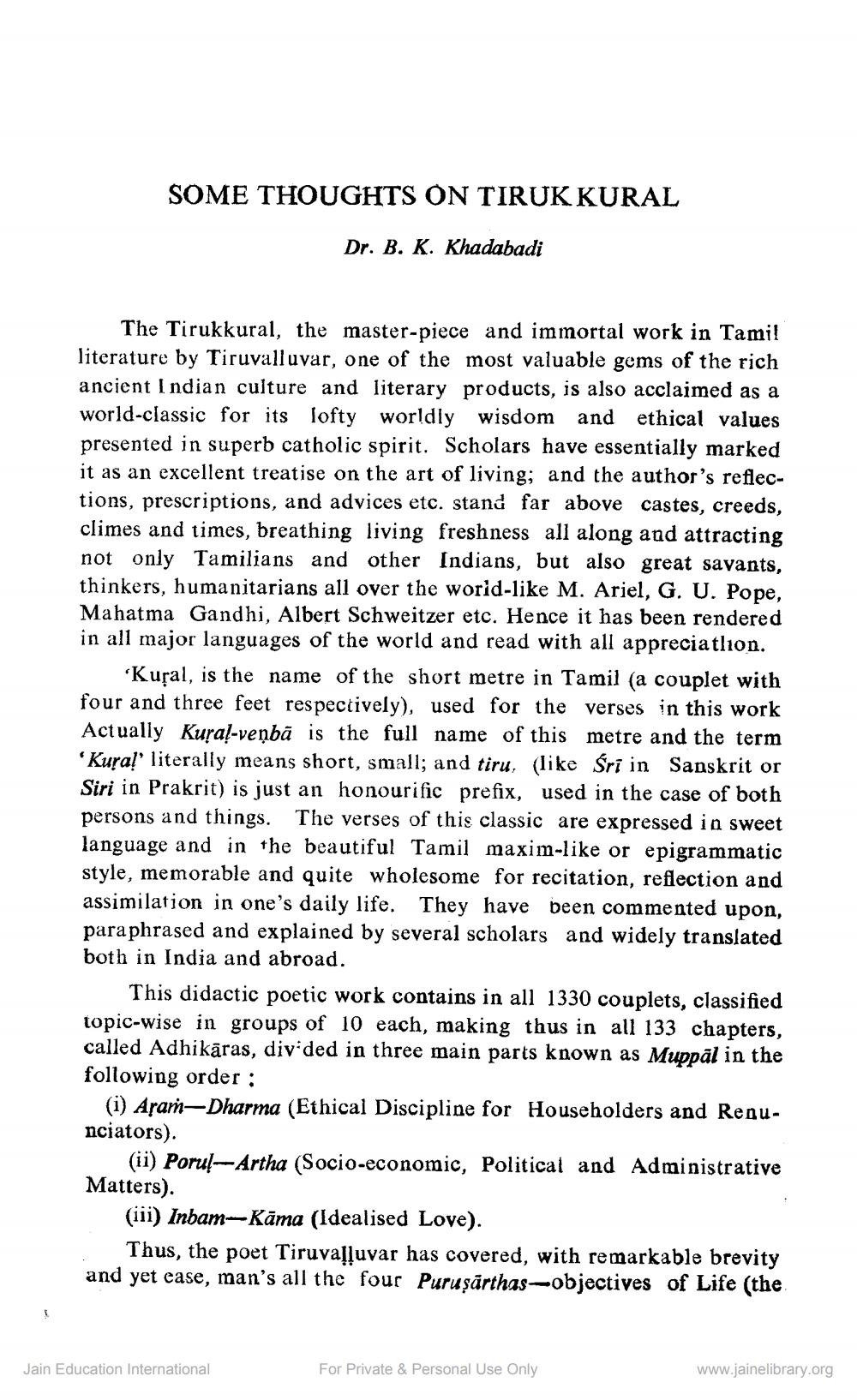________________
8
SOME THOUGHTS ON TIRUK KURAL
Dr. B. K. Khadabadi
The Tirukkural, the master-piece and immortal work in Tamil literature by Tiruvalluvar, one of the most valuable gems of the rich ancient Indian culture and literary products, is also acclaimed as a world-classic for its lofty worldly wisdom and ethical values presented in superb catholic spirit. Scholars have essentially marked it as an excellent treatise on the art of living; and the author's reflections, prescriptions, and advices etc. stand far above castes, creeds, climes and times, breathing living freshness all along and attracting not only Tamilians and other Indians, but also great savants, thinkers, humanitarians all over the world-like M. Ariel, G. U. Pope, Mahatma Gandhi, Albert Schweitzer etc. Hence it has been rendered in all major languages of the world and read with all appreciation.
'Kural, is the name of the short metre in Tamil (a couplet with four and three feet respectively), used for the verses in this work Actually Kural-veņbã is the full name of this metre and the term 'Kural' literally means short, small; and tiru, (like Śrī in Sanskrit or Siri in Prakrit) is just an honourific prefix, used in the case of both persons and things. The verses of this classic are expressed in sweet language and in the beautiful Tamil maxim-like or epigrammatic style, memorable and quite wholesome for recitation, reflection and assimilation in one's daily life. They have been commented upon, paraphrased and explained by several scholars and widely translated both in India and abroad.
This didactic poetic work contains in all 1330 couplets, classified topic-wise in groups of 10 each, making thus in all 133 chapters, called Adhikaras, divided in three main parts known as Muppal in the following order:
(i) Aram-Dharma (Ethical Discipline for Householders and Renunciators).
(ii) Porul-Artha (Socio-economic, Political and Administrative Matters).
(iii) Inbam-Kāma (Idealised Love).
Thus, the poet Tiruvalluvar has covered, with remarkable brevity and yet ease, man's all the four Puruşarthas-objectives of Life (the
Jain Education International
For Private & Personal Use Only
www.jainelibrary.org




